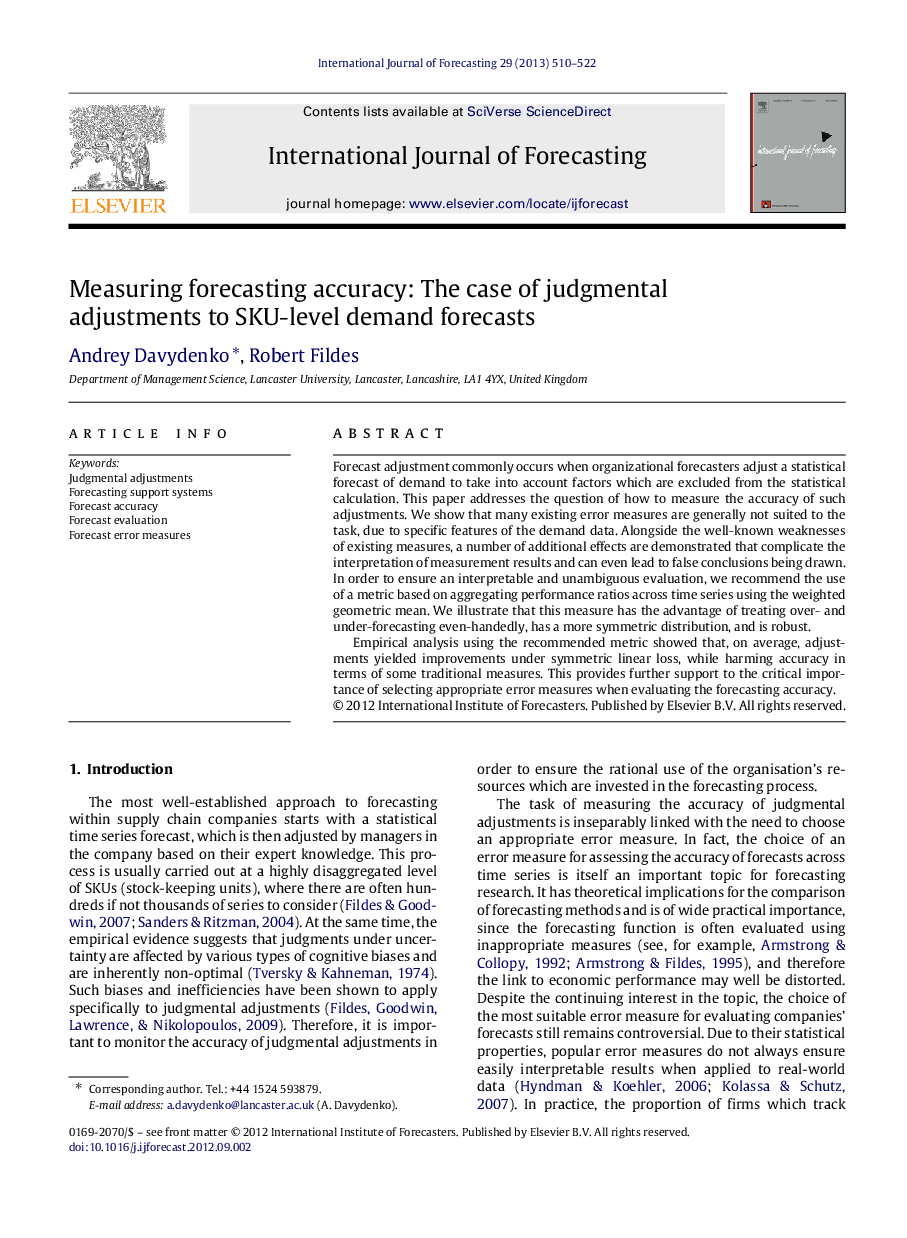| Article ID | Journal | Published Year | Pages | File Type |
|---|---|---|---|---|
| 997522 | International Journal of Forecasting | 2013 | 13 Pages |
Forecast adjustment commonly occurs when organizational forecasters adjust a statistical forecast of demand to take into account factors which are excluded from the statistical calculation. This paper addresses the question of how to measure the accuracy of such adjustments. We show that many existing error measures are generally not suited to the task, due to specific features of the demand data. Alongside the well-known weaknesses of existing measures, a number of additional effects are demonstrated that complicate the interpretation of measurement results and can even lead to false conclusions being drawn. In order to ensure an interpretable and unambiguous evaluation, we recommend the use of a metric based on aggregating performance ratios across time series using the weighted geometric mean. We illustrate that this measure has the advantage of treating over- and under-forecasting even-handedly, has a more symmetric distribution, and is robust.Empirical analysis using the recommended metric showed that, on average, adjustments yielded improvements under symmetric linear loss, while harming accuracy in terms of some traditional measures. This provides further support to the critical importance of selecting appropriate error measures when evaluating the forecasting accuracy.
